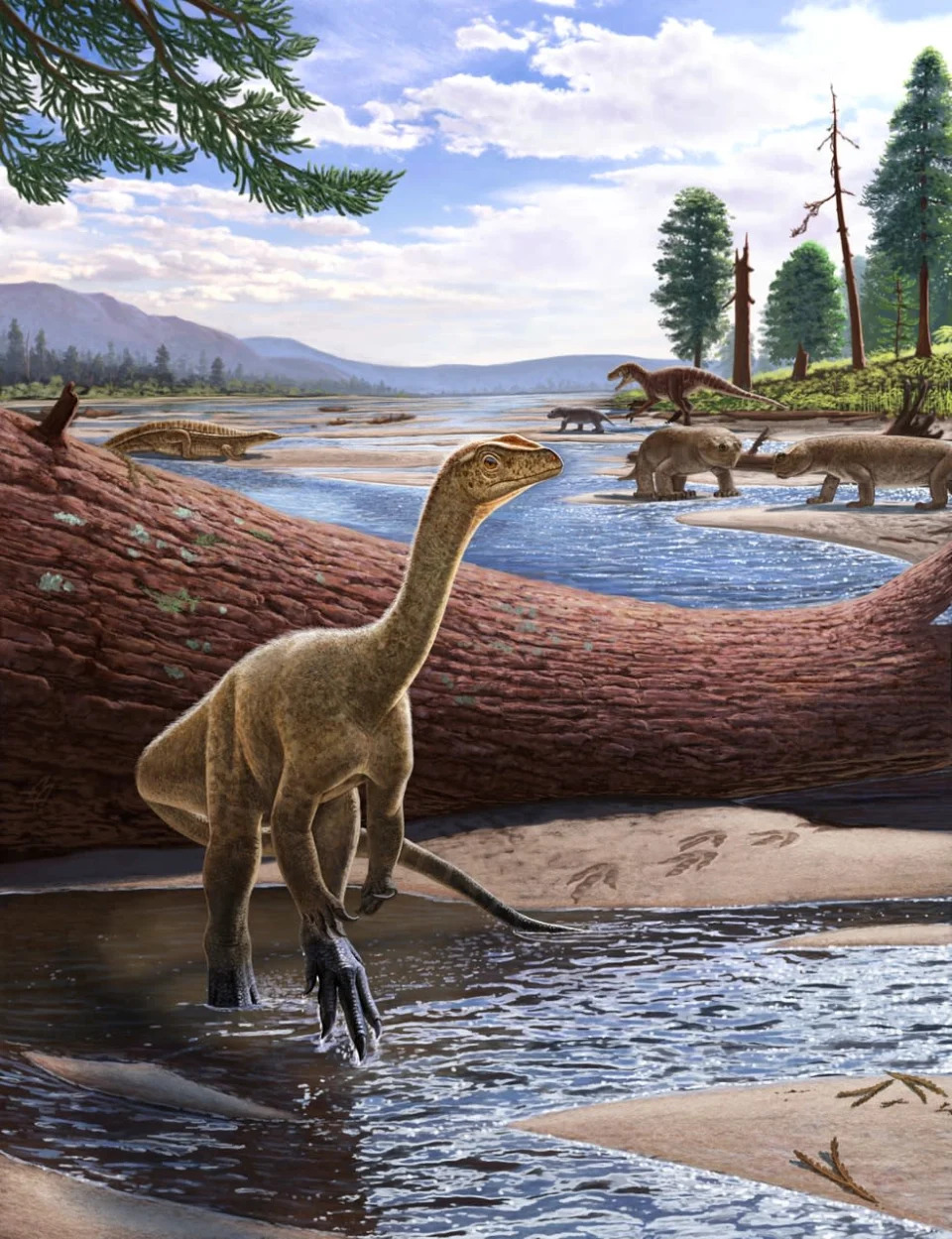A new species of dinosaur discovered in Zimbabwe is the oldest found in Africa to date, according to a research team in a statement sent to Efe on Thursday.
The dinosaur, known by its scientific name “Mbiresaurus raathi”, was found after excavations that began in 2017 during an expedition to the remote northern district of Mbire, in the Zambezi valley of the African country.
The name refers to Mbire, the district in which the creature’s remains were discovered, and pays tribute to paleontologist Michael Raath, who first published fossil studies of the area.
“These are the oldest known definitive dinosaurs in Africa, roughly equivalent in age to the oldest dinosaurs found anywhere in the world,” said the team, led by American scientist Christopher Griffin of Yale University.
The dinosaur, whose skeleton is almost 90 percent intact, is a species of sauropodomorph that stood on two legs, grew to a height of 1 to 1.5 meters, and had a long neck and a small head.
“The only important bones missing are some of the hand and parts of the skull,” the researchers explained.
The dinosaur lived during the Late Triassic, about 230 million years ago.
At that time, all the world’s continents joined together to form Pangea, the supercontinent that later began to fragment into landmasses separated by oceans.
Zimbabwe was then in line with northern Argentina, southern Brazil and India, the scientists said.
Along with the new dinosaur skeleton, the research team discovered other fossils that included ancient reptiles known as rhynchosaurs and the earliest ancestors of mammals and crocodilians, known as cynodonts and ethosaurs, respectively.
These remains are very similar to fossils dating from the same period discovered in deposits in Argentina, Brazil and India.
The research team, whose findings were published in the scientific journal Nature, hopes to discover more fossils in the Mbire district.
“A considerable number of fossil sites have been discovered and further exploration will be carried out,” the scientists stressed.
Anusuya Chinsamy-Turan, a paleontologist at the University of Cape Town, South Africa, who is not part of the study, said the dinosaur’s discovery was good news for Africa.
“I think that Africa still has many more dinosaurs that will be discovered the more paleontologists start looking for them,” she told Efe Chinsamy-Turan.
The Mbire district occupies an area where the Australian company Invictus will carry out significant oil and gas exploration.
Chinsamy-Turan said mining activities can sometimes help uncover new fossil beds, though she hopes precautions have been taken to protect the area’s prehistoric riches.
“I sincerely hope that environmental and paleontological impact assessments have been carried out, and that firm agreements are in place to ensure that the ecology is protected and that any fossils discovered are properly excavated and taken to a museum for safety and study,” added the paleontologist. .

